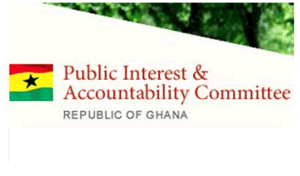PIAC advocates more infrastructure for schools
 The Public Interest and Accountability Committee (PIAC) has expressed concern about the infrastructural development in Senior High Schools (SHSs) in the Northern, Upper East and Upper West Regions.
The Public Interest and Accountability Committee (PIAC) has expressed concern about the infrastructural development in Senior High Schools (SHSs) in the Northern, Upper East and Upper West Regions.
They have therefore called on government to expand their facilities to cater for the teeming number of students.
Dr Thomas Kojo Stephens, Vice Chairman of PIAC who disclosed this at a Town Hall Meeting organised by PIAC in the Kassena – Nankana Municipality of the Upper East Region, said when PIAC visited some schools in the regions, it realised the need for government to concentrate and improve infrastructure.
He noted “PIAC has expressed concern that while it is good to provide them with the supplies, the books, food etcetera, it is important that you also pay attention to the infrastructural development, in terms of the dormitories, dining halls etc.”
He said “when we went to a places like Bunkurugu, we realised that the dining hall, and the dormitory facilities were woefully lacking,” and indicated that headmasters of various schools visited, relied on monies from second and third year students to run their schools until government released funds.
“So their concern is that when SHS one and SHS two becomes free, and government funds are not yet disbursed, what are they going to rely on during those difficult periods. Those are all concerns that have been coming up as we engage in our project inspections,” Dr Stephens said.
The Vice Chairman said PIAC during its inspection also realised that there were lots of shoddy works done in terms of six classroom blocks they inspected, “so we have not really gotten a lot of value for money in terms of the classroom projects that we inspected.”
He said there were cost overruns in terms of project execution, especially road construction, mainly because government was unable to pay constructors on time and so the budgeted amount for projects after completion were usually “ballooned, and that is one area where we have lost a lot of revenue.”
He said PIAC would work with the Economic and Organised Crime Office (EOCO) and Office of the Special Prosecutor to ensure that people who misappropriated funds were prosecuted, and hinted that some cases had already been referred to the Auditor General for further investigations.
Mr Affail Monney, President of the Ghana Journalists Association (GJA) and member of PIAC, said the GJA’s role as member of PIAC was not only to heighten the accountability dimension, but to put the activities of PIAC in the public domain.
“The people ought to know how their resources are spent, the people ought to make contributions on how to govern the oil sector to ensure that every Ghanaian benefit from our own resources,” he said, and emphasised that “members of PIAC do not know it all, they are not repository of wisdom.”
Mr Monney said no institution could play accountability role better than the media, “we have what it takes, we are not shackled by any law, we are not feted by anything, we say things as they are, and we exercise over sight responsibility over the key players including government.”
Mr Rockson Ayine Bukari, the Upper East Regional Minister, commended members of PIAC for fulfilling one of its important mandates of providing space and platform for the public to debate the spending, management and use of petroleum revenues against national development priorities.
He called on community leaders and members to take keen interest in projects, and work with implementers to take on their concerns, adding that Town Hall Meetings were avenues to seek stakeholders’ contributions as active citizens so that PIAC could advocate on their behalf.
Source: GNA
